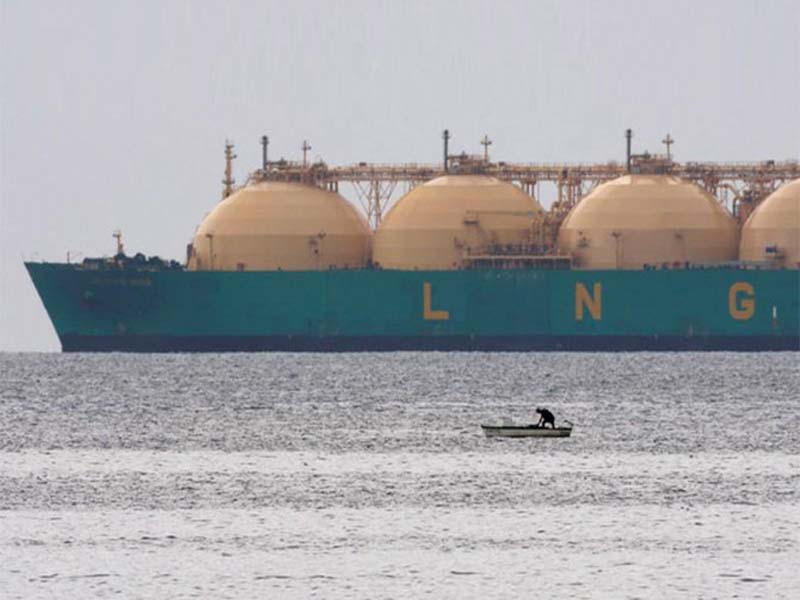
Pakistan is set to formally request Qatar to reduce its liquefied natural gas (LNG) supplies in a bid to relieve pressure on gas utilities, as the country's power sector has shown reluctance to lift its allocated gas volumes. Currently, Pakistan imports 10 LNG cargoes per month under contractual agreements, with Pakistan State Oil (PSO) importing nine cargoes from Qatar and one from the Italian firm ENI.
However, sources indicate that Sui Northern Gas Pipeline Limited (SNGPL) has asked PSO to cut back on LNG imports by deferring three cargoes each month. This means PSO would only import six LNG cargoes per month instead of nine, reflecting a decreased demand for gas within the country.
LNG is primarily used in Pakistan's commercial and power sectors. The power sector, however, has refused to take its full allocation of LNG, citing a dip in electricity demand. Two main factors have contributed to this drop: rising electricity tariffs and a growing shift among consumers toward solar energy. Power distribution companies claim that approximately 7,000 MW of electricity has been added to the national grid through net metering, although they lack data on the off-grid solar electricity production, which is believed to be even higher. These companies also estimate that 80 MW of electricity is added to the grid each month through solar net metering.
Experts argue that the soaring electricity rates are a key reason behind industrial closures. Distribution companies (Discos) have informed the power regulator that many industrial units have shut down due to unaffordable electricity costs. With the government in negotiations with the International Monetary Fund (IMF), there are growing concerns that electricity prices may rise even further.
In light of these circumstances, the power sector is unwilling to take on additional LNG supplies. Sources also reveal that gas utilities have shifted their focus toward distribution and marketing, eyeing profitability, while their expenses and revenue needs are being recovered from consumers. Despite the actual cost of gas ranging between $2 and $6 per million British thermal units (mmbtu), sources say consumers are paying significantly higher pricesup to $10 per mmbtu for local gas and $13 per mmbtu for imported LNG.
Given the situation, experts suggest that the government should consider restructuring state-owned gas utilities to reduce operational expenses and lower gas prices. In response to the reduced demand for LNG, a government committee led by Foreign Minister Ishaq Dar has explored the option of selling contracted LNG to private parties to lessen the burden on the state. The diversion of LNG to domestic consumers over the years has contributed to the accumulation of circular debt, further straining the economy. Mismanagement in LNG imports has also added financial pressure on local oil and gas exploration companies. In order to accommodate LNG imports, state-owned gas utilities have refused to lift indigenous gas, leading to a reduction in gas supplies from local fields by as much as 440 million cubic feet per day (mmcfd).
The prime minister has taken notice of the issue, as consumers are being forced to purchase expensive imported LNG instead of cheaper indigenous gas. The reduction in local gas supplies has now exceeded 200 mmcfd, offering some relief to local oil and gas companies. These companies, which have committed $5 billion in investments, had previously warned the government that their investments were at risk due to the cuts in indigenous gas supplies caused by the prioritisation of LNG imports.

1721390241-0/BeFunky-collage-(20)1721390241-0-405x300.webp)
















COMMENTS
Comments are moderated and generally will be posted if they are on-topic and not abusive.
For more information, please see our Comments FAQ